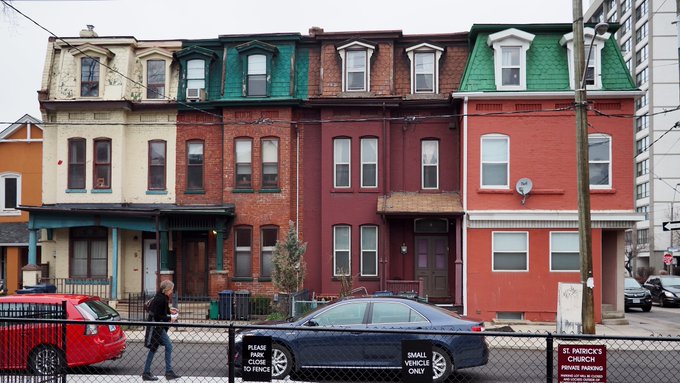CHKC. Image credit: @cityoftoronto
Toronto/CMEDIA: James Maloney, Member of Parliament for Etobicoke-Lakeshore, Toronto’s Deputy Mayor Amber Morley (Etobicoke-Lakeshore) were reportedly joined by representatives of the Canadian Helen Keller Centre (CHKC) at 150 Eighth St, Toronto for a groundbreaking event of new housing project at 150 Eighth St. to deliver 56 affordable and accessible homes in Toronto’s west end.
Leading the project together, CHKC will be represented at the groundbreaking by Board Chair Philip Corke, real estate developer and Board Director Anupam Kothari and Chief Executive Officer Jennifer Robbins,.
“We are…expanding the affordable housing…CHKC provides for deafblind consumers…Every home in our new building at 150 Eighth Street…will be fully or universally accessible…for people of all ages and abilities…the apartment complex…to reduce social isolation, improve the quality of life for vulnerable deafblind individuals…homelessness or living in unsafe environments…create a community without barriers,” said Robbins.
In partnership between CHKC, the City of Toronto and the federal government through CMHC, the property at 150 Eighth Street is a new six-storey building with one-, two- and three-bedroom homes alongside a range of shared spaces and amenities, including a rooftop garden.
“A safe and secure home…150 Eighth Street project will provide housing stability for people with disabilities from our community…with the support they require for their future success. Our government is pleased to work…to help bring this project to life…those in greatest housing need,” said Maloney on behalf of Sean Fraser, Minister of Housing, Infrastructure and Communities.
Also include a 6,500-square-foot state-of-the-art training facility, The CHKC apartment complex will provide learn essential life skills to deafblind people to aid in their independence while caring for their families and homes.
Impacting over 2% of Canada’s population, the dual disability of deafblind people represent 602,160 consumers nationwide including 246,370 in Ontario, Statistics Canada’s latest Canadian Survey on Disability said.
CHKC training courses including safe travel, communication, computer essentials, use of iOS and Android devices, home management skills, cooking and kitchen essentials, personal grooming and money management are customized for the varying needs of each individual.
Instruction will be available in English, French, and American Sign Language (ASL) through one-on-one classes and group workshops.
Support staff for various community-based programs, including intervenor services to act as the eyes and ears of a person who is deafblind, are also offered by CHKC by highly skilled trained professionals.
Helping individuals to navigate their environment, communicate, Intervenors help them make their own choices and achieve as much independence as possible. on-duty intervenors will be available in the new CHKC building 24 hours a day, seven days a week, and . Access to Additional related support services and social programs that evolve around sharing meals, gardening and other peer group activities will also be offered by an intervenor. Consumers can also book one-on-one sessions with an intervenor.
The second round of the federal government’s Rapid Housing Initiative (RH2) funding would be provided for 150 Eighth Street.
While also benefiting from incentives from the City of Toronto in the form of waivers of development charges, the project’s planning and building fees, and property tax relief would be provided on an ongoing basis.
With a vision to provide all deafblind individuals live free from limitations, CHKC’ mission is to empower the deafblind community through consumer driven services and opportunities to maximize independence and empower through Advocacy, Collaboration, Community, Respect, and Professionalism.
While CHKC seeks to raise an additional $6 million for this project, donors, including the Kothari Group, Sunita and Vinod Vyas, and Canadian Foundation for Physically Disabled Persons, have also made generous gifts.





